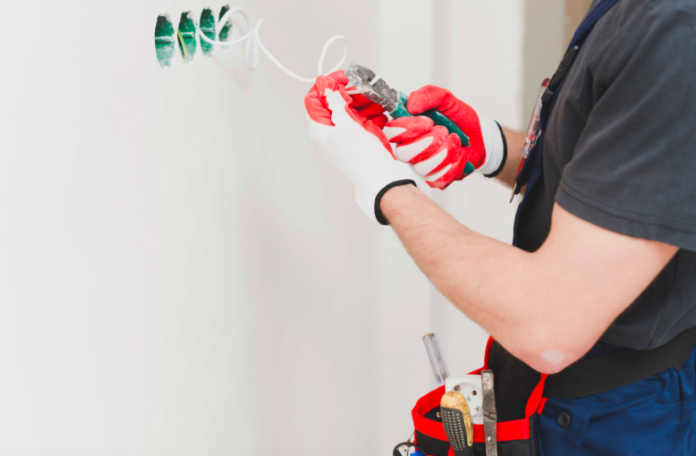Electrical safety refers to caring for and maintaining everything to do with electricity to prevent electrical incidents. Electrical safety includes avoiding overloading power outlets and ensuring electric cords are in good condition. Failing to practice electrical safety can result in accidents such as fires and electrocution.
If you want to keep your property and family safe from electrical hazards, you’ve come to the right place. This article offers a comprehensive guide to electrical safety tips and practices. However, if your property is at risk of electrical incidents, this website is worth a look since it discusses when to call an emergency electrician and what they can help you with. Continue reading to learn more about tips and practices for enhancing electrical safety.
- Follow Instructions
Every appliance and gadget comes with written instructions for safe electricity use. You should therefore study the instructions and adhere to them to the letter. Following appliances and gadgets’ electrical safety doesn’t only enhance your safety but also improves their performance. If a device or machine emits electric shocks, stop using it and have a professional electrician inspect it.
- Repair Or Replace Damaged Electrical Cords
Damaged electric cords pose a significant risk to you and your home. They can cause fires and electrocution. That said, it’s vital for home and property owners to inspect extensions and other power cords to determine if they’re damaged and require repair or replacement. If you notice any signs of cracking or fraying on your electrical cords, repair or replace them immediately to prevent property damage.
While it’s possible to repair damaged power cords, it’s not advisable unless you have the necessary experience. Instead, replacing the cables with new ones would be best. However, if you decide to repair them, hire a professional electrician for excellent results.
- Maintain Safe Distance Between Water And Electricity
Water and electricity should never come into contact. Experts say you should store water five feet from the electrical outlet or equipment. You should also invest in Ground Fault Circuit Interrupters (GFCIs) to prevent electrical accidents such as overheating, ground faults, and shocks. When cleaning your home, dry it effectively to avoid leaving wet areas around electric cords.
- Avoid Overloading Electrical Outlets
Overloading an electric outlet is among the most common causes of electrical issues. You should therefore avoid overloading an outlet at all costs. According to experts, you should never plug more than one heat-producing appliance into one outlet. It’s also advisable to use a power strip with built-in surge protection instead of multi-outlet converters or extension cords for multiple appliances. If your appliance becomes excessively or unusually hot, hire a professional electrician to diagnose and address the issue.
- Examine Your Switchboard
Understanding how your switchboard works and ensuring it’s in good working condition are among the best electrical safety practices. A switchboard is a safety device that protects and separates the operator from electrical currents. It is designed to distribute electrical power safely and efficiently to various appliance components and devices.
A well-maintained switchboard should be in compliance with relevant electrical codes and standards to prevent issues such as overheating and fires. If you’re unsure about the condition of your switchboard, consult a professional electrician to inspect and ensure it is up to date and functioning correctly.
- Address Flickering Lights
Flickering lights are characterized by their simultaneous appearance of brightness and dimness. Sometimes, these lights may turn off and on without any interaction with the switch. Lights flashing results from loose connections along power lines. Your lights could also flicker due to loose bulb connections requiring to be secured. Regardless of what causes the lights to flash, address them since the loose connection is a fire hazard.
- Avoid DIY
The most common electrical mistake many home and property owners make is attempting to correct electrical issues. If you don’t have any experience repairing or installing power lines or appliances, it’s best to hire a professional electrician. Attempting to correct electric issues can result in severe injuries, death, or property damage.
- Unplug Appliances If Not In Use
Another crucial electrical safety is unplugging all appliances not in use. This step doesn’t only impact your monthly power bill but also prevents overheating that could pose a fire hazard. Excessive heat from electrical devices can also damage the entire electrical system.
- Never Touch Electric Cables And Appliances With Wet Hands
As earlier stated, water and electricity shouldn’t be used in one sentence. Always make sure your hands are completely dry before operating electrical appliances or handling power cables. Wipe your hands with a dry cloth until they’re completely dry before contacting anything to do with electricity.
- Childproof Electrical Outlets
If you have young children in your home, you’ll want to childproof all your electrical outlets. Children are curious and tend to touch things, so if they come into contact with electrical outlets, they could be at risk of electrocution.
Conclusion
Electricity is an essential part of daily life. It lights homes, power appliances and gadgets, and enables the production of different products. However, electricity can pose hazards if proper safety measures are not followed. For example, electricity can lead to fires and potentially fatal electric shocks.
Keeping that in mind, it is crucial for everyone to practice the electrical safety measures outlined above. These measures are straightforward, making it easy for anyone to follow them. If you suspect an electrical issue, consult a reputable electrician for assistance.











